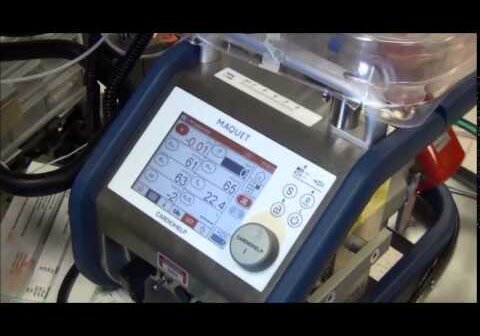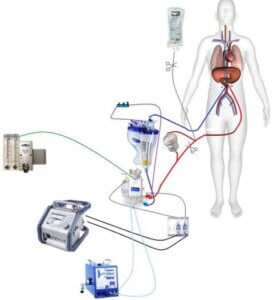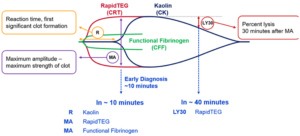Mobile ECMO- Extending reach and expertise beyond hospital walls
For very sick children in rural communities, access to care can mean a decision between a long, dangerous trip to a far-away hospital or less-sophisticated care in their local facility.
Seattle Children’s has just invested in technology to make that decision easier for the families who face it.
With an international reputation for extracorporeal (outside the body) life support, Seattle Children’s took the step this week to further its expertise and invest in portable ECMO technology, which it says will allow them to reach sick children in distant communities who were previously considered too fragile to be transported.
ECMO, which stands for extracorporeal membrane oxygenation, is an advanced life-support therapy that functions for the heart and lungs when the organs fail or need to rest, such as before a surgery or when waiting for a transplant.
“Mobile ECMO allows us to extend our reach and expertise beyond the hospital walls to care for kids in need,” said Dr. Mike McMullan, director of the extracorporeal life support services as Seattle Children’s. “It is a question of access to care.”
The hospital, which is the first children’s hospital on the West Coast to offer portable ECMO, is partnering with Airlift Northwest, the Pacific Northwest’s leading air medical transport provider. The trained mobile ECMO team will travel by ambulance, helicopter or plane to Washington, Alaska, Hawaii, Idaho, Montana and Oregon to transport critically ill children to Seattle Children’s for specialized care.
When deciding to buy these two portable ECMO devices, which each cost $100,000, McMullan’s team looked at data on children’s deaths to analyze how many could have benefited from the life support. The team then met with other medical centers who have similar programs, held conference calls with global leaders in the field, and constructed a business plan, McMullan said.
The total cost came out to about $500,000 for the devices, fees and training. When compared to some medication prices, McMullan said the cost to the hospital was reasonable.
While the program will not make the hospital money, it will bring other benefits, financial and otherwise, particularly in the form of more patients.
Having this technology and transferring critical patients from other hospitals, McMullan said, will mean developing stronger relationships with these hospitals, which could in turn mean more non-ECMO referrals.
He also said offering this technology solidifies Seattle Children’s leadership in the region, which will make people think about the hospital more frequently or earlier if they have a really sick child and need advanced care.
Content retrieved from: http://www.bizjournals.com/seattle/blog/health-care-inc/2016/02/seattle-children-s-new-tech-to-help-sick-children.html.





